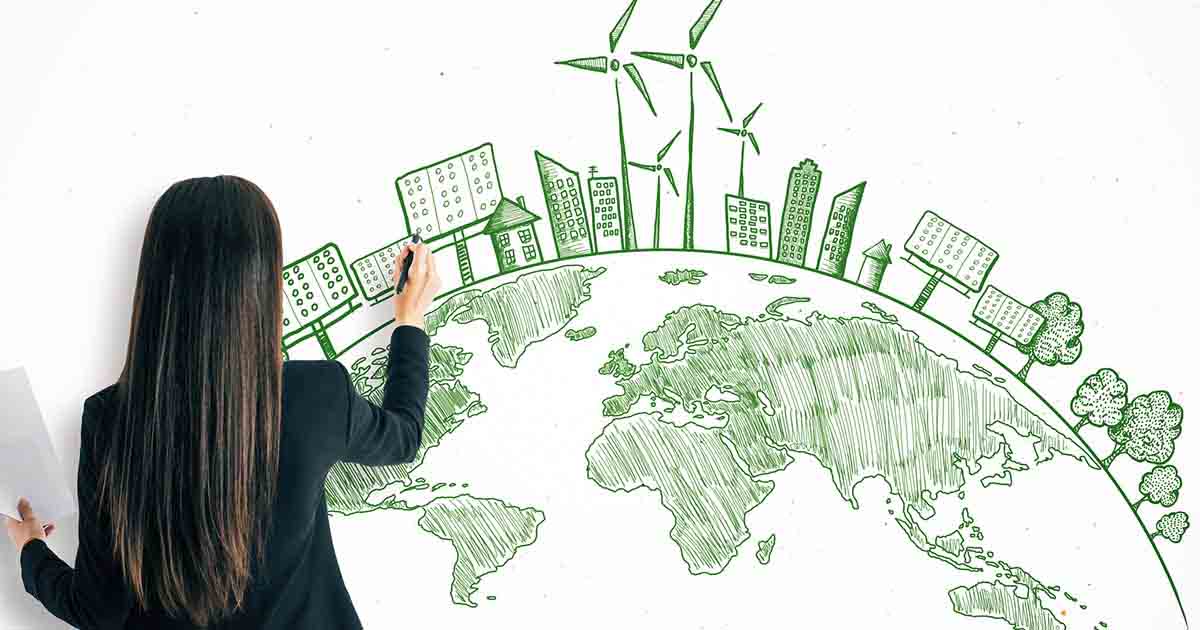Women are at the forefront of a new age. Using their growing prominence in entrepreneurship, many women have founded companies that aren’t just generating profit, but are creating good for the world.
Women make up a large proportion of all social entrepreneurs. In fact, a 2015 study found that the world’s social entrepreneurs are 55 percent male and 45 percent female, which means, "In social ventures, both genders are equally represented, suggesting that social entrepreneurship is a top business field of interest for women worldwide." Both inside the United States and internationally, these women are addressing important social issues like hunger, health, poverty, education, gender inequality, and human trafficking.
While a number of large corporations, such as Google and Unilever, have adopted more socially conscious strategies, the difference is that the following female-founded companies were created with change in mind; each of the entrepreneurs is combatting one of the world’s most pressing problems. Here are six such entrepreneurs who are changing the world in innovative ways — using the market to make a mark.
Innovative Social Entrepreneurs
Many entrepreneurs use their creativity and innovation to help others and make the world a better place.
We've explored several women-owned businesses that are changing the world one innovative idea at a time.
Keep reading or use our skip-ahead links to learn more about the female entrepreneurs and their companies.
Female-Founded Startups Changing the World
1. Waste Less, Feed More
San Francisco-based Copia calls hunger the “World’s Dumbest Problem.” That’s because founder and CEO Komal Ahmad believes that it’s a logistics problem, not a scarcity problem. “In a world with so much excess and so much abundance, there’s no reason we can’t feed every person on the planet,” reads Copia’s website.
Ahmad was motivated to find a solution to this logistics problem after inviting a homeless veteran to join her for lunch and finding out that he had not eaten in three days. She was especially disgusted thinking about the large quantities of food wasted at the UC Berkeley dining hall across the street.
With her company, Ahmad wants to make healthy food more accessible to those who need it by facilitating redistribution of high-quality excess food made by companies.
The Copia platform makes it possible for businesses to “feed the community, save money, and reduce waste.” Through machine learning and predictive analytics, Ahmad has been trying to adjust the numbers and make the logistics more logical in food distribution.
2. Loaning a Hand
One of the best ways to help communities thrive is through economic empowerment. That’s exactly why the work done by Cristina Junqueira with her company Nubank is so important.
Nubank, a Brazilian fintech company, “aims to make banking accessible to everyone through tools like low-interest credit cards, high-interest savings accounts, and an app-based credit system.”
Junqueria wants to combat Brazil’s exorbitant fees and interest rates, which are the highest in the world, and allow people to reinvent their own financial lives. She has been anti-bureaucracy and pro-transparency since 2013, when she quit her corporate job at a Brazilian bank after receiving a raise that made her question her priorities.
Junqueria wanted to make an impact instead of making money. And that is exactly what she’s done (well actually, she’s done both). Her company is now worth $10 billion, and has plans to move its operations to other countries like Mexico and Argentina.
Additionally, the Nubank team is floating new ideas like investment products, personal loans, and accounts for small and medium-sized businesses.
3. Political Rev-her-lution
There is a long history of gender inequality in politics. As of last year, just 23.5 percent of national parliamentarians were women, six percent of heads of state and six percent of heads of government, according to the UN.
The United States has had 44 presidents (45 presidencies) and not one of them has been a woman. For Erin Loos Cutraro, this is just not good enough, which is why she launched She Should Run in 2011.
The goal is to empower and encourage women from all walks of life to run for office. So far, the company has already inspired more than 26,000 women — and has the ambitious vision of #2KBY2030; getting 250,000 women running for elected office by 2030.
Through community, growth opportunities, and support via its resources, She Should Run gives women of all political leanings, backgrounds, and ethnicities the foundation they need to compete on the political stage.
This company is changing the face of politics and creating a much more inclusive space.
4. Not Just a Drop in the Bucket
Unfortunately, there are still billions of people in the world who go without reliable access to clean water. Aging pipe networks, water supply shortages, and sporadic timing can mean water doesn’t live up to a safe standard.
Anu Sridharan, the co-founder and CEO of NextDrop, wants to solve the water problem in India using mobile technology.
The NextDrop platform tracks information regarding the quality, quantity, and accessibility of water, and then sends it via text to local residents.
Its website describes the process: “We pair data from devices, with inputs from the consumers, to show which areas are receiving sufficient water quantity and which are not. We use this data to make recommendations to the utility [company] on how to manage supply for more equal distribution.”
The idea that Sridharan had as a graduate student became larger than she ever could’ve imagined, allowing communities to stay in the loop in ways they never could before.
5. Stopping Traffic
Forbes 30 under 30 honoree Emily Kennedy has been using her entrepreneurial chops to fight an insidious problem that affected an estimated 40 million in 2016: human trafficking.
Kennedy began researching for her company, Marinus Analytics, at age 21, asking detectives what resources they would use to find sex trafficking victims. “They were using Google, which is insane,” she says.
Shocked, Kennedy decided to find a better way; she began looking for one at Carnegie Mellon’s Robotics Institute, where she learned about the potential of artificial intelligence (AI).
The resulting technology she produced was an AI tool, Traffic Jam, that exponentially decreased the amount of time it would take for investigators to find information online — from years to seconds.
Marinus Analytics has since put its cutting-edge, crime-solving technology to use, aiding in 14,400 sex-trafficking investigations and identifying 3,000 victims.
Kennedy hopes this technology has scope beyond human trafficking, and could be used to help authorities solve other crimes much more efficiently.
6. Sharing the Code
The key principle of Leila Janah’s company, Samasource, is that simply giving communities what they need is much less valuable than teaching them how to create the resources themselves.
Samasource does this by serving as a middleman: “It secures contracts for digital services from large U.S. and European companies (including LinkedIn and Google), divides the work into small tasks —“microwork”— and sends it to centers in developing regions, where employees complete it using a web-based interface.”
What originally started as a non-profit in East Africa in 2008 has grown into an international for-profit working with 25 percent of the Fortune 50 companies.
Samasource has already helped 50,000 lift themselves out of poverty using its strategy of re-distributing employment and its supplemental computer literacy programs, but the Samasource team thinks this is just the beginning.
Janah believes that this model — “connecting people to dignified digital work” and “paying living wages” — could be used to correct many of the world’s largest social problems, like poverty, gender inequality, and climate change.



